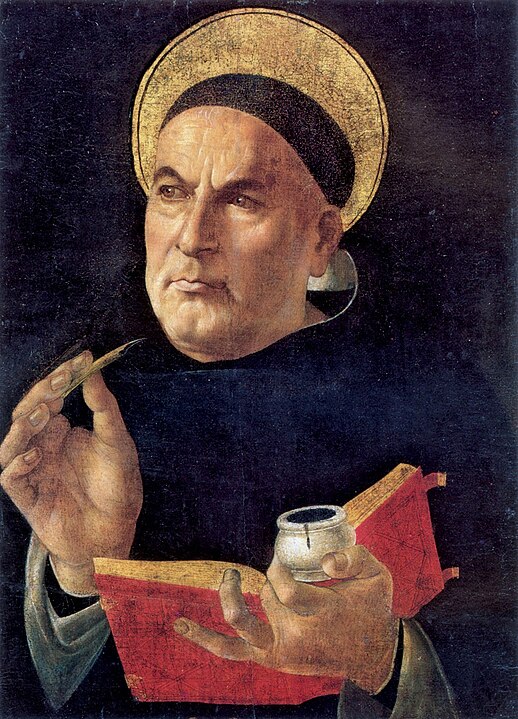Scripture tells us to love our neighbors. But how do we prioritize all of the neighbors that we have? This theological question has been raised by Vice President J. D. Vance, no less, who answers it in a distinctly Catholic way by drawing on the theology of St. Thomas Aquinas. But is that answer correct?
In a discussion about the administration’s crackdown on illegal immigration, Vice President Vance said this in a Fox News interview:
There is a Christian concept that you love your family and then you love your neighbor, and then you love your community, and then you love your fellow citizens, and then after that, prioritize the rest of the world. A lot of the far left has completely inverted that.
The Catholic editor of First Things, R. R. Reno, argues in a Compact article of this title that “J. D. Vance Is Right about the ‘Ordo Amoris.’” He explains the scholastic notion: Yes, we are supposed to love everyone. “But Aquinas refines the conclusion, concluding that we should not love all things in the same way and to the same degree. . . .We need to love the right things in the right way.”
Aquinas applies the notion of ordo amoris to our love of other people. There is no question that all persons are equally worthy of our love. We are created in the image and likeness of God. But each of us is cast into a world of already existing relationships. These relationships bring with them duties and responsibilities.
Aquinas lays down a basic principle: “One’s obligation to love a person is proportionate to the gravity of the sin one commits in acting against this love.” Put differently, we’re to love with greater devotion those for whom we have greater responsibility.
Aquinas gives our relation to our parents as an example. We are obligated to honor our mother and father. It’s right there in the Ten Commandments. It follows, therefore, that a love of others that impedes or contradicts our proper love of our parents is misguided, even wrong. The same holds for children. Do we imagine that God calls us to love others in a fashion that leads us to neglect our obligations as parents? In Bleak House, Charles Dickens creates a character, Mrs. Jellyby, who exemplifies the perversion of love. She is devoted to philanthropic endeavors abroad while neglecting her own children.
You get the idea. He goes on, developing the notion “that we are to love those near with a greater fervor than those far away.”
This makes sense, and yet the Bible complicates the issue. Jesus clearly extends our obligation to love our neighbors beyond those who are “close” to us:
“You have heard that it was said, ‘You shall love your neighbor and hate your enemy.’ But I say to you, Love your enemies and pray for those who persecute you, so that you may be sons of your Father who is in heaven. For he makes his sun rise on the evil and on the good, and sends rain on the just and on the unjust. For if you love those who love you, what reward do you have? Do not even the tax collectors do the same? And if you greet only your brothers, what more are you doing than others? Do not even the Gentiles do the same?” (Matthew 5:43-47)
When Augustine introduced the concept of the ordo amoris, he was not thinking of a hierarchy of love, much less a sequence of first love these people, and then love these others. He was speaking of “ordering” our loves, and he told us how to do it.
Augustine was not just talking about how we “should” love; rather, he recognized that we do love all kinds of things. We love sex, we love pleasure, we love money, we love possessions, we love our friends, we love our family, we love our pets, we love our hobbies, we love our country, and on and on.
Because of our sinful condition, though, we often love things we shouldn’t, we love what we should love in sinful ways, and our loves are in conflict with each other. That is to say, our loves are disordered.
The love of God, though, puts our other loves in order. When we love God above all things, the other loves fall into place: Our sexual love is ordered in marriage. Our love for our children is ordered by our desire to bring them up in the nurture and admonition of the Lord. Our love for possessions is ordered by gratitude and generosity. Our love of pleasure is ordered by temperance and self-control, etc., etc.
Augustine discusses all of this in his great treatise City of God. His distinction between the City of God and the City of Man is based on the predominant object of love. The City of Man is based on the love of self. The City of God is based on the love of God.
When our loves are properly ordered by love of God, we can even love our selves in the right way, ordering our self-love in terms of God’s love for us and the physical and spiritual gifts He continually pours out upon us, above all, the gift of salvation through Jesus Christ.
There is one more piece of the puzzle as to the ordering and prioritizing of our loves, one that Luther in particular can help us with. Let’s discuss that tomorrow.
Illustration: St. Thomas Aquinas by Sandro Botticelli – Transferred from de.wikipedia to Commons by Boteas using CommonsHelper.Original uploader was Aquinat, Public Domain, https://commons.wikimedia.org/w/index.php?curid=14842363














